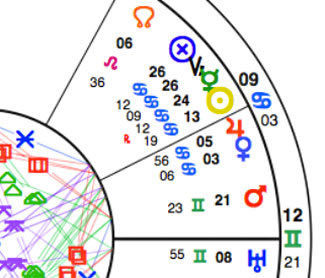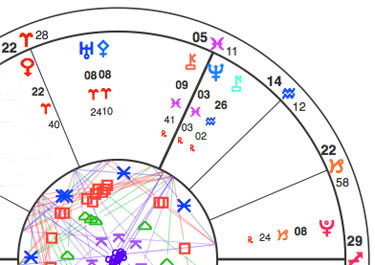Posted on Aug. 5, 2011 | Link to original
Dear Friend and Reader:
Sunday night I was out in New Paltz, our little San Francisco here in Ulster County, interviewing a couple who wants to model for my photo studio. It was a beautiful, warm summer evening. We were outside Mexicali Blue, a gourmet taco place not to miss if you’re ever in town. Our conversation was veering from art into social issues, such as the nature of education, environmental toxins and the whole debt ceiling crisis that was at that point still in flux.

Into our discussion drops a buff 19-year-old guy who was in town for rock climbing, the thing for which New Paltz is perhaps most famous as a global destination. He was visiting from Long Island, where he lives and attends community college in a wealthy part of New York State.
He told us that he used to have a lot to say about politics but got fed up because so few people care. I started asking questions and in a little while I figured out that he’s a conservative who refuses to use the word, who is against high corporate taxes, the welfare state or ‘socialism’ in any form. If someone messes up, it’s their fault. If they succeed, good for them. They owe nothing to anyone else, and in his opinion, what he’s calling socialism amounts to taking what is rightfully his and giving it to someone else who doesn’t deserve it — such as a drug addict. Because taking drugs is a personal choice, society owes you nothing if you get into this condition.
I was not in the mood to yes him along, and I was fascinated by what he kept coming out with — so I challenged him on every point. To his claim that corporate taxes are too high, I explained how many of the biggest companies pay no corporate income taxes at all. To his claim that society should not take care of drug addicts, I explained that prison costs the state a lot ($22,000 a year per prisoner) and we’re also going to be paying other ways if we don’t help them, such as ER visits, and the various costs of crimes related to the drug trade. (Let’s not forget that the U.S. war in Afghanistan was God’s gift to heroin trafficking.)
When the conversation came to companies that produce chemicals that cause birth defects, victims of which are supported for life by SSI, he accused me of being a conspiracy theorist. In his world, birth defects don’t exist and if they do, they are certainly not caused by chemical or nuclear companies.

Now, you might think this was a conversation with a random jerk. You might think, well, he’s 19 and has never had a solid job and is sheltered from living in his privileged community and family, and maybe he was exposed to too many lawn chemicals as a child. You might think this is the 2010s equivalent of meeting an anarchist in Washington Square Park in the 1960s, our modern stand-in for the long-haired guy who wants society to feed everyone for free and believes we’re all equal and that the system should be brought down: a conservative version of Meathead from All In The Family.
Perhaps, but his viewpoint is not random. I was especially intrigued because the conversation ran parallel to an email discussion with another friend that had been unfolding over the prior few days — with someone who considers himself a ‘right of center conservative’. One match-up point that made my bells ring was the thing about denying that companies such as Dow or Monsanto make chemicals that cause birth defects. My email friend informed me that birth defects have been around forever, essentially denying that they are caused by industry in enormous numbers. (Dow Chemical, which made much of the Agent Orange that was dumped on U.S. troops and the people of Vietnam, tries to claim the same thing.)
You could call this living in an alternate reality.

What impressed me the very most about the young guy I met in New Paltz was how angry he was — especially in context: that context being he had come upstate to play in a world-class climbing area, he was young, healthy and strong, he didn’t have to be at work the next day, he was getting an education heavily subsidized by the state and it was a beautiful summer night.
And he was pissed off. I would even say outraged. His rage was directed at people who had less than he did. So too was the anger of my older conservative email friend: he is very, very angry at the people who don’t have jobs and who live off the system. My older friend has worked for the government his whole life. He does not see the irony of his position. I understand he’s working rather than ‘collecting’, however from the viewpoint of a self-employed person (for example), government workers have relatively little to worry about.
I also recognized this viewpoint from a conversation with my dad, which we had during the 2008 election. Dad was outraged that Obama’s proposed healthcare reform plans would (in his mind) bankrupt the nation. My father has both federal Medicare coverage and the very best private health insurance through his government job. He did not pay a dime for his heart valve replacement at St. Francis Hospital a few years ago, one of the best cardiac centers in the NY area — the taxpayers covered all of it. He got paid by the state to be in the hospital and recover (sick leave). But he was angry that anyone else (such as myself) might have access to affordable health insurance.
Lately I’ve been trying to describe this anger that I see as inherent in conservatism, mingled with the lack of concern for others and the lack of recognition that we’re all in this life together. Then a friend wrote to me and said, there’s a word for this thing you’re seeing: resentment. Here is the weird thing. Resentment is usually directed at those who have more. Now it’s being directed at those who have less, almost as a national pastime. And, the worse the economy is, the more there will be who have less. The more that wealthy companies pile up profits and cut jobs and pay lower taxes, the fewer jobs there will be. Our country is currently in the midst of a long-term experiment that proves this point. The big news of the moment is a stock market slide that happened the same week as the supposedly heroic debt deal and record low tax rates in the United States.
There is a lot of psychology mingled into the resentment of so-called conservatives, and I think that astrology may be able to shed some light on what it’s about. It has a lot to do with how and where we direct our rage — we tend to project it onto others, or direct it inwardly as guilt. This combination of anger, resentment and guilt is taking over the emotional landscape on which politics is built. And it is having some extremely toxic effects.

The topic I want to cover this week involves the idea of what we share, which is the dominant theme of the United States charts.
One attribute of modern capitalism is that it wants to cut the government out of the loop entirely (with the notable exceptions of regulating pregnancy and policing and incarcerating the poor). If there’s going to be another Hoover Dam, it supposedly has to be built by a private company, for profit — and that ain’t happening. We have to rely on our common resources to do a project that big. But any notion of the commons is quickly going away as privatization sets in like hypothermia.
As the government is cut up and sold to industry, parking meters are becoming private (such as in Chicago and other cities). The Pennsylvania Turnpike was nearly sold to investors. Prisons are being privatized and have for years been privately traded on Wall Street. The military is becoming private (Blackwater Security, now called Xe Services, being the second largest member of the coalition fighting in Iraq). Numerous government services have been spun off into private hands, all as part of a long-term plan to dismantle the government. Homeland Security is enforcing trademark law, picking on people who have knock-off handbags and wear unofficial Major League Baseball hats.
But these things are the least of it. With the Citizens’ United decision coming out of the Supreme Court in January 2010, the political process is becoming the wholly-owned property of corporate interests, which can now spend unlimited money to influence elections. With this ruling, any hope of ‘campaign finance reform’ was set back to the days of monarchy [see Keith Olbermann explain the decision in this special comment].
We are in the midst of a total takeover of government by corporate interests. With each passing day the government has less power and corporate interests have more power, including over government and private individuals. The News Corp scandal is a demonstration of how much power a corporation can have, the latest twist being their use of drone aircraft within the United States.

In truth, this is a form of anarchy passing for conservatism. It’s not the authentic anarchy of high individual responsibility; rather, it’s the attitude that the FBI might get in the way of someone’s business plan for a criminal enterprise, so let’s cut their funding. (This is the same thing as a polluter, for whom the EPA is a problem, wanting to cut some more environmental regulators out of the budget, which just happened this week.) The result of all of this is less common ground for everyone. We are expected to share less — but then we have less.
To give a recent example, the government just had its power vastly reduced by The Deal that was passed by Congress and Pres. Obama this week. The federal government now has less financial flexibility, as its line of credit is being taken away (after much abuse by the very people who just took it away). Congress is being replaced by a committee of 12 people that will make its deficit and debt-related decisions for it. The private sector, once again, is being excused from paying into the public sector — that is to say, there are no tax increases for corporations or very high earners, and in fact there is a massive corporate tax holiday being planned.
USA: Two Charts, Two Images of a Country
Speaking of taxes, shared values and investments, let’s see what the USA charts have to say about these and some closely related issues. We do so in a moment when this whole realm is changing fast.
The primary chart for the United States is called the Sibly chart. It’s the most commonly accepted chart for the signing of the Declaration of Independence. While there are disputes about the exact time of the signing, you can think of the Sibly chart as the traditionally accepted chart, and one that has been well tested by many astrologers. [Read my prior article on the Sibly chart here.]

It’s the chart for the 13 colonies stating their opposition to the crown of England, and basically declaring war. The Declaration of Independence gives a vision for the new nation that’s forming. The Declaration includes the quote, “We hold these truths to be self-evident, that all men are created equal; that they are endowed by their Creator with certain inalienable rights; that among these are life, liberty, and the pursuit of happiness.”
It continues, “Whenever any form of government becomes destructive to these ends, it is the right of the people to alter or to abolish it, and to institute new government, laying its foundation on such principles and organizing its powers in such form, as to them shall seem most likely to effect their safety and happiness.” Basically, it outlines a vision — and a long list of issues that reveal why the founders wanted to get busy enacting that vision.
We see the vision in the Sagittarius ascendant of the Sibly chart. That is the theme of the chart, and the image that the colonies are presenting to the king of England as well as to the world. Sagittarius is the sign that would include expansion (the Manifest Destiny that would push the new country out to the West Coast) as well as the spiritual vision embraced by references to the Creator. Sagittarius is the sign of ‘don’t crowd my space’, and the colonies were pushing back against quite a bit of tyrannical activity on the part of the king.
We also see idealism in the Aquarius Moon. You can think of this as the Moon that wants life to make sense; that believes in an egalitarian viewpoint on existence; that is able to rise above drowning in emotion and can apply reason to the questions of life.
But the heart of the Sibly chart is found in the 8th house. Here is a close-up of that house. This chart shows the Sun and five additional points in Cancer in the 8th. [Check here for a more detailed look at the 8th house.]

The 8th is one of the most interesting houses of the 12, in part because so much happens in that house in our current version of the world. In the old days it started as the house of dowries and inheritances. As such it described death and also civil death (what happened to a woman when she got married — she would go from Jane Roe to Mrs. John Doe, losing her prior civil identity as part of the marriage contract).
The 8th covers inheritances, which is the money that changes hands as part of an estate or legacy. It’s therefore the house of shared resources. So by extension it covers the banking system, as well as many of the financial activities of corporations (such as investment and sale of stocks — however, speculation, a form of gambling, is covered by another house, the 5th). The 8th will often have the feeling of a life-or-death struggle rather than a game.
The United States has a massive inheritance indicated by its birth chart. It has Venus and Jupiter, the two benefics (planets associated with benefit and wealth) conjunct in a sign where they are both very happy (Cancer). Plus, the Sun is in this house and sign. The overall result is an orientation on the 8th house and also an indication that there is a lot of wealth to go around. Most of the people who signed the Declaration had no clue what was west of the Mississippi River. The explorers Lewis and Clark would not get there till 1806. So for years that inheritance sat like a vast, unclaimed trust fund, granted, one that the new owner often had to acquire by warfare as the claim was made.
In the sign Cancer, the use of that endowment would be for the common good: the vast American family, which has access to that wealth to share. Notably, the 8th is also the house of taxation. One way that wealth would be distributed would be through a system of taxes, which includes fair representation of those who are paying into the system.
Let’s hold that thought and switch charts, to a lesser-used one for the United States called Scorpionic America. That’s the chart for the Articles of Confederation in November 1777. The chart was researched and introduced to astrology by the late astrologer David Solte.

David explained the chart to me personally shortly before he died in 2002. He said that the Declaration of Independence was 13 independent colonies choosing to do something together — declare freedom from England. The Articles of Confederation was the first time they formally joined together as one country, with a common set of rules binding them (this was replaced by the Constitution 10 years later in 1787). The chart is called Scorpionic America because the Sun is in Scorpio. The chart is dominated by three signs, however — Gemini, Scorpio and Capricorn.
Notice that there’s an interesting similarity between the Sibly chart and Scorpionic America: the 8th house has a lot of activity. The subject area remains the same but the theme shifts to the sign involved — Capricorn. Suddenly that collective wealth, that national inheritance, is all about business. Instead of two of the warmer, cuddlier planets, we get Mars and the South Node of the Moon — indicating an obsession with violence and power. It’s a very different kind of inheritance, and a whole different notion of sharing resources.
In particular, the South Node in the 8th house suggests a long history of power struggle, particularly in Capricorn. It’s almost as if the nascent country inherits and indeed becomes exactly what it’s trying to get away from by fighting the Revolutionary War.
There are three later discoveries in this house, particularly Pluto and Eris. These are pretty intense energies to put into the 8th and Capricorn, together suggestive of a lot of turmoil. Add to that the asteroid Juno — often representing a sense of possessiveness and small-mindedness — and we have a picture of the business climate that later emerges around the United States economy: viciously competitive, unstable and driven by selfish interests rather than collective interests.

Scorpionic America has Gemini rising, which reveals the dual identity of the United States. We start off fighting for our independence, and then end up bombing other countries in the name of democracy. Uranus in the ascendant has an edgy, erratic, volatile feeling. Uranus plus Gemini rising has the feeling of, watch out, don’t know who I really am — I could become anyone.
In a sense, the Sibly chart represents the initial idealistic vision of the United States at the time independence was declared, and Scorpionic America represents what the country eventually becomes.
Note that the 8th house has many themes involving sexuality. There is an association with the 8th sign (Scorpio) and also a connection point between marriage and sex (the marital contract being the thing that supposedly makes sex and the resulting children ‘legitimate’). Sibly has a family, nourishment and pleasure concept of sex (Venus and Jupiter in Cancer); Scorpionic America has a puritanical, regressive and patriarchal one, dominated by a sense of power-over rather than sharing. There is plenty of desire in that Capricorn 8th of Scorpionic America, but it’s in a heck of a lot of conflict, and seems destined to become an instrument of political oppression.
Current Transits: The 2012 Aspect
Perhaps the most interesting thing about these charts is that they’re both under the influence of what I call the 2012 aspect — Uranus square Pluto. That is the slow-moving, slowly building aspect that makes its first exact contact in June 2012.

Both of the USA charts have planets and other points packed into the early degrees of cardinal signs (Cancer and Capricorn), which is where all the action is now. The cardinal cross is currently home to Uranus in Aries, Mars in Cancer, Saturn in Libra and Pluto in Capricorn, all of which are rattling both United States charts, in particular their 8th houses. The Sibly chart’s 8th house is taking a series of oppositions from Pluto in Capricorn, and squares from Uranus in Aries. Scorpionic America is taking conjunctions from Pluto in Capricorn and squares from Uranus in Aries. All of this involves the 8th houses of both charts, where the issue of shared finances and joint resources is expressed.
That is a picture of the volatility of the times we are in, and it’s also suggesting a huge transformation of some kind is ahead. One chart suggests a values system of greed and obsession with money (transiting Pluto in Capricorn in the 2nd house of individual wealth, opposing all those Cancer planets in the 8th house of shared wealth). The other suggests that America is about to collect on its past karma (transiting Pluto in Capricorn conjunct Eris, the South Node and Mars in the 8th house).
Taken together, these transits add up to nothing less than a total transformation, on the level of a revolution. We might not see how this is possible now, but as the next few seasons unfold it will become obvious. The revolution is about shared resources on one level, and about values on the other. Yet this is not merely theoretical change or contemplating an idea.
Many people are going to experience this as a challenge, but it’s also the change many, many people have been wanting. All of the 8th house placements in both U.S. charts are coming under transits by planets that get results even when working alone (Uranus and Pluto even individually are forces to be reckoned with) but when acting together, they have been known to topple empires.
Yours lovingly,




